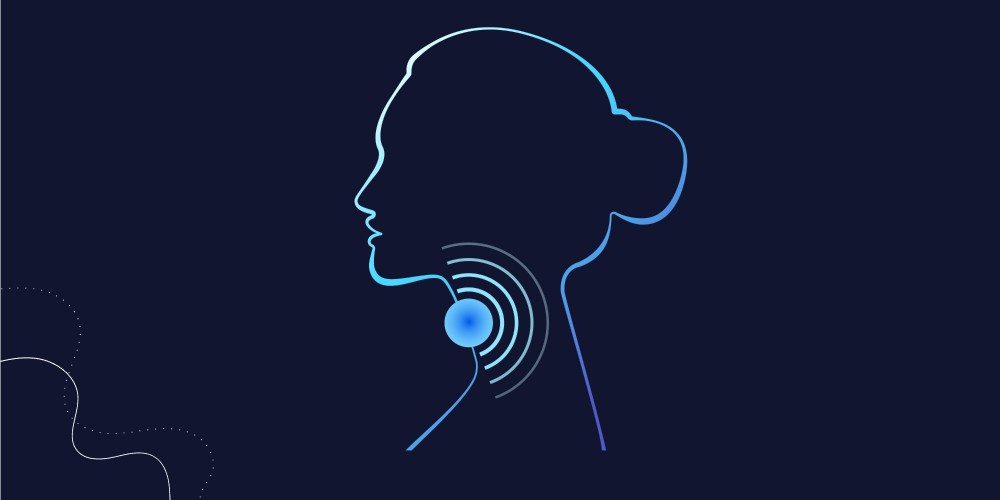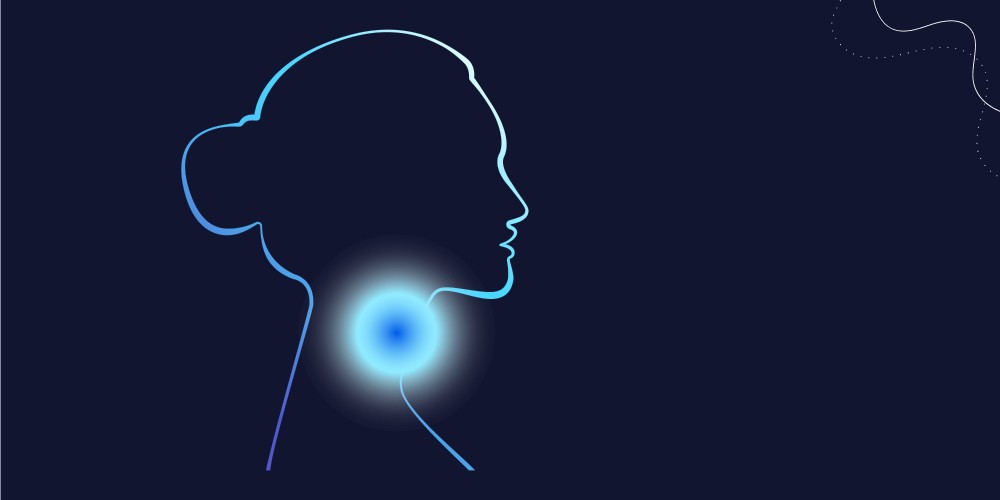Parkinson’s disease is a condition in which a part of the brain called the substantia nigra loses nerve cells. This loss leads to a decrease in a substance called dopamine, which is vital for regulating body movements.
Most Parkinson’s cases are registered in the age group of 55–65 years, but there are also younger patients — 30–40 years old. The symptoms of this disorder can be very diverse and vary from patient to patient. Therefore, it is essential to recognize the signs of Parkinson’s at an early stage.
One of the main symptoms is speech problems. It can be used to suspect a disease at the beginning of development. For example, a person loses the ability to speak clearly and intelligibly at a slow pace. Over time, problems of speech can worsen. Then a decrease in the ability to reason, formulate thoughts, and express emotions begin.
Speech Problems in Parkinson’s Disease
With the onset of Parkinson’s, most people experience difficulties with communication. Along with this, Parkinson’s voice disorders are increasing significantly. A person begins to speak too loudly or quietly and can’t control it. These changes usually appear slowly. The voice gradually becomes hoarse, monotonous, hypophonic, and trembling. Also, in half of the cases, disorders of the articulation of the lips, tongue, and lower jaw are added. It is especially noticeable when pronouncing consonant sounds. In addition, among Parkinson’s speech problems, there are other signs:
- voice trembling;
- difficulty pronunciation;
- shortness of breath during communication;
- incomprehensible delivery of words;
- sudden change in voice tone;
- difficult selection of words to express thoughts.
People with Parkinson’s have low pressure in the oral cavity during the pronunciation of sounds; therefore, their speech has a lot of pauses. Such manifestations cause significant discomfort to patients and make it difficult for them to communicate with friends, relatives, and other people.
Speech Problem Treatment
The treatment of speech problems is poorly studied, so doctors can’t guarantee that therapy can help avoid problems with it completely. However, most studies indicate an increase in effectiveness by engaging in speech gymnastics. So, there are various additional methods of Parkinson’s speech therapy, for example:
- teaching correct behavior;
- use of voice amplification devices;
- learning to distribute the power of the voice when speaking;
- trying to take a comfortable position when communicating with others;
- speaking more often and expressing thoughts more clearly.
All these therapies are aimed at curing Parkinson’s voice disorders. It is often done by special therapists who can use special communication devices. It helps to strengthen the speech better and speak more clearly.
Swallowing Problems in Parkinson’s Disease
Another critical problem of Parkinson’s is swallowing difficulty. Since the patient can’t swallow saliva normally, they can’t eat and drink usually. A piece of food does not pass through the esophagus, and liquids are even more difficult to swallow than solid pieces. Because a person with this diagnosis feels severe discomfort in the oral cavity and has a sore throat, they develop problems with digestion over time. As a result, it can lead to new diseases.
Swallowing leads to severe difficulties in the life of such patients, and the problem is that Parkinson’s does not have 100% of the drugs that can overcome it. Trembling of the vocal cords and weakening of their muscles leads to the fact that they can’t even calmly take medicine. Therefore, with such manifestations of symptoms, it is essential to start therapy as early as possible to avoid even more severe manifestations of Parkinson’s.
Swallowing Problems Treatment
Patients must first consult a speech therapist to start complex therapy for swallowing difficulty. The doctor can analyze the severity of the problem and make recommendations for diet and exercise to improve swallowing. Treatment may include:
- learning how to chew food and control it in the mouth properly;
- practicing exercises to strengthen the laryngeal muscles;
- training to prevent food and liquids from entering the trachea;
- learning to retain food in the mouth less and to swallow it properly;
Of course, it is challenging for people with Parkinson’s to undergo such therapy because it is painful and requires a lot of effort. However, if the discomfort with swallowing is solved immediately, the patient can make their life easier and avoid the worsening of Parkinson’s.
Drooling in Parkinson’s Patients
Drooling is a common non-motor symptom of Parkinson’s, which is experienced by about half of patients at various stages of the disease. It is because the muscles of the face and oral cavity do not work well, leading to a delay in swallowing. Accordingly, saliva, produced in the mouth, can’t be controlled. So, it also becomes the cause of speech problems. The patient can’t speak normally due to excessive saliva coming out of the mouth. And it causes not only life discomfort but also many physical problems. For example, the additional appearance of diseases in the oral cavity or stomach. As a result, a person becomes less capable and socially isolated due to drooling issues.
How to Treat Drooling
Treating drooling is quite a difficult task. There are usually not many ways to avoid this problem:
- Potent drugs. In most cases of Parkinson’s disease, doctors prescribe effective medications that stop drooling and improve speech. Such pills dry the excess saliva in the mouth for a particular time. Although it helps to control saliva, such drugs have many side effects. They can cause memory impairment and even lead to dementia. Also, it provokes hallucinations and urinary retention.
- Eye drops. It is another method of drooling treatment. Therapists may prescribe eye drops to use under the tongue. They are used twice a day to help regulate saliva production.
Such drugs are prescribed strictly according to the prescription.
Parkinson’s Voice Changes
Poor fine motor control associated with vocalization can lead to voice problems in people with Parkinson’s. The glottis does not close entirely, and the vocal folds bend. Such things signal the deterioration of Parkinson’s and indicate the appearance of voice disorders. They are characterized by an uncontrolled change in tone during speech. The voice can be quiet and loud and happens at any moment.
Most of these phenomena are associated with laryngeal muscle stiffness. Therefore, the early onset of voice change indicates muscular models of the disease of the articulatory apparatus. So, paying attention to such things and consulting a doctor as soon as possible is essential because it can go into an even more difficult phase. Then it becomes difficult for a person to make a voice or decide on speech problems, and the monotony of the conversation does not give an understanding of what was said.
How to Deal with Voice Changes
In the case of voice changes, Parkinson’s speech therapy is performed. It helps not only to speak correctly but also to control the tone of voice. Speech therapists do the following workouts with patients:
- do a warm-up of the articulation apparatus;
- use activities for voice problems;
- they try to teach the patients to keep their voices at the same level;
- use computer applications to increase or decrease the voice;
- use special equipment for clear speech and better diction.
Parkinson’s voice disorders will gradually decrease if patients use this treatment regularly.
General Tips to Improve Speech in People with Parkinson’s Disease
A good therapy specialist can help you with problems of speech, but the following things are also helpful:
- Drink water regularly to improve vocal cords’ work.
- Train the facial muscles to help pronounce words better.
- Sing and learn poems to help express thoughts better and keep the correct pronunciation of words.
- Always practice speaking, not forgetting how to speak and complete sentences.
- Do breathing exercises to avoid pauses during a conversation.
Parkinson’s disease has many negative consequences, so it is essential to use these speech exercises regularly to prevent them.
Read about the best types of exercises for people with Parkinson’s disease in our other article.
Bottom Line
So, identifying symptoms of Parkinson’s disease at an early stage can save you from worse consequences. The main thing is to consult a doctor who will prescribe medicine for you. It will help not only to relieve Parkinson’s speech problems but also to reduce the complexity of all other symptoms.
FAQs
- Does Parkinson’s cause speech problems?
Yes. If a person is diagnosed with Parkinson’s disease, sooner or later, they will have speech problems. It is because this disease carries neurological issues that affect the slowing down of the articulation apparatus. It is manifested by difficult pronunciation and big pauses during a conversation.
- What are the signs that Parkinson’s is getting worse?
When medicines do not work on a patient with Parkinson’s disease, it means that disorder worsens and moves into a severe stage. It can be in the form of severe complications with memory. Also, it’s manifested by the sudden appearance of anxiety, worsening sleep, and uncontrolled movements.
- What happens when a Parkinson’s patient can no longer swallow?
As Parkinson’s disease progresses, swallowing problems may worsen. In this case, it is difficult for the patient to swallow the food with saliva. Because of this, food and liquids can get into the lungs and provoke the appearance of aspiration pneumonia.
- What are speech therapy exercises?
People with speech problems due to Parkinson’s undergo therapy with a speech therapist. They perform exercises of the articulatory apparatus to develop speech. Therefore, they learn to move their tongue from side to side, from top to bottom, pronounce certain words correctly, and control speech speed.













Please, leave your review
Write a comment: